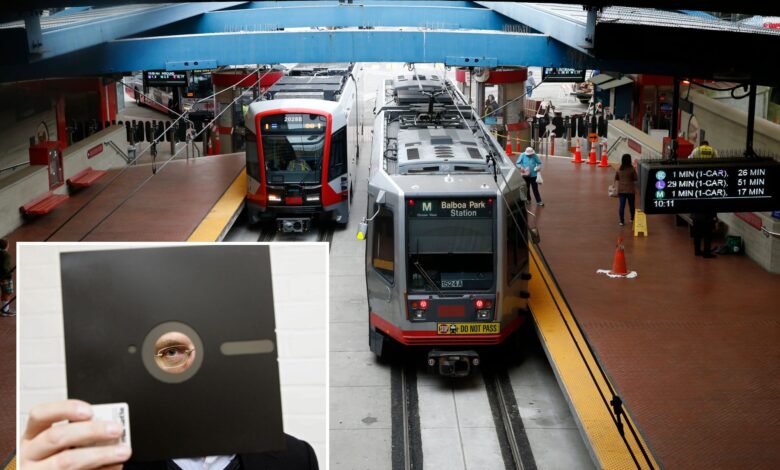San Francisco OKs $212M revamp of train system run by floppy disks

San Francisco transit officials have approved a $212 million overhaul of its aging train control system — which for decades has run on data stored by floppy disks.
The Municipal Transportation Agency board, which oversees the Muni Metro light rail network in the city, approved a new contract with Hitachi Rail to upgrade its existing train control system, which was first installed at the Market Street subway station in 1998.
The software that runs the Automatic Train Control System (ATCS) is stored on floppy disks that are loaded each morning, according to the San Francisco Chronicle.
Three floppy disks are used for loading DOS software that controls the system’s central servers, according to Ars Technica.
DOS, which stands for disk operating system, was used to power IBM personal computers through the 1980s and 90s. But the rising popularity of Windows and other graphical user interfaces led to its demise.
“When a train enters the subway, its onboard computer connects to the train control system to run the train in automatic mode, where the trains drive themselves while the operators supervise,” Michael Roccaforte, an SFMTA spokesperson, told Ars Technica in April.
“When they exit the subway, they disconnect from the ATCS and return to manual operation on the street.”
Roccaforte said that the initial plan was to transition away from floppy disks beginning in 2018. The entire process was expected to last a decade.
But the coronavirus pandemic pushed back the initial end goal to 2030.
The Hitachi system that will eventually take the place of the floppy disk-powered mechanism is said to be five generations ahead, according to Muni Director of Transit Julie Kirschbaum.
Kirschbaum told the Chronicle that the new system is thew best train control technology available on the market.
For those who owned personal computers in the 1980s and 1990s, the 5-and-a-quarter inch floppy disk was once among the most popular format for memory storage and data exchange.
But the advent of CD-ROM, USB drives and improved hard disk capabilities marked the beginning of the end for floppy disks.
The last major manufacturer of floppy disks was Sony, which stopped producing them in 2011.




